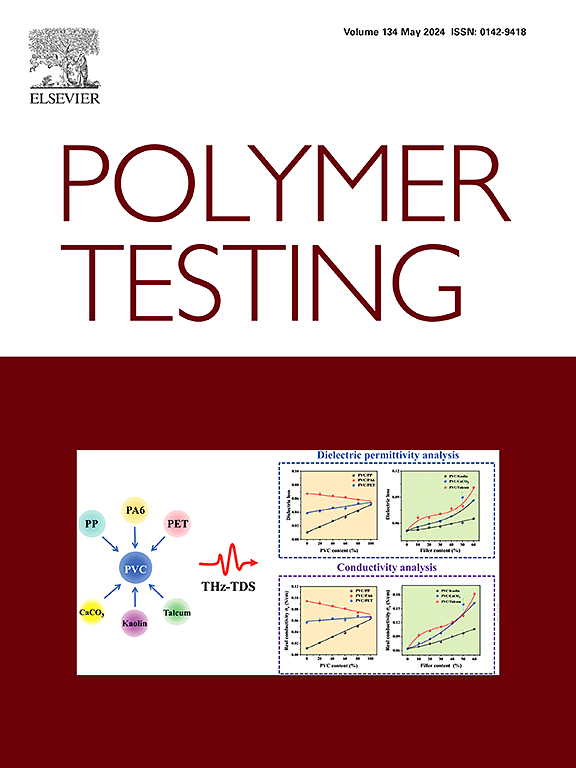Microplastics to Metabolomics: Understanding the environmental and health implications of plastic pollution
IF 6
2区 材料科学
Q1 MATERIALS SCIENCE, CHARACTERIZATION & TESTING
引用次数: 0
Abstract
Microplastics (MPs) are composed of solid plastic fragments that are smaller than 5 mm and are insoluble in water. MPs have acquired more attention in recent years, due to their pervasiveness in the environment. There are worries regarding the potential health effects of these particles on humans because they have been discovered in various food products and water sources. So, a comprehensive method for researching the biochemical effects of MP exposure is provided by metabolomics, an analytical technique that is useful for analyzing metabolites within biological systems. This review explores the application of metabolomics to the investigation of the biological consequences of Microplastic (MP) pollution. It looks at metabolomics methods, both targeted and untargeted, that offer a thorough examination of the metabolites impacted by MP exposure. The review also examines the potential health risks—such as oxidative stress, immune system disruption, and metabolic problems—associated with MP exposure. It highlights the need for additional study to elucidate the long-term health consequences of MP exposure. This review provides a comprehensive understanding of the biological effects of MP contamination and its wider ecological and health implications by combining metabolomics with environmental research.

微塑料代谢组学:了解塑料污染对环境和健康的影响
微塑料(MPs)是由小于5mm的固体塑料碎片组成的,不溶于水。近年来,由于国会议员在环境中无处不在,他们获得了更多的关注。人们担心这些颗粒对人类健康的潜在影响,因为它们已经在各种食品和水源中被发现。因此,代谢组学为研究MP暴露的生化效应提供了一种全面的方法,这是一种分析生物系统内代谢物的分析技术。本文综述了代谢组学在微塑料(MP)污染的生物学后果研究中的应用。它着眼于代谢组学方法,包括靶向和非靶向,提供受MP暴露影响的代谢物的彻底检查。该综述还研究了与MP暴露相关的潜在健康风险,如氧化应激、免疫系统破坏和代谢问题。它强调需要进一步的研究来阐明MP暴露的长期健康后果。本综述通过代谢组学与环境研究的结合,提供了对MP污染的生物学效应及其更广泛的生态和健康影响的全面了解。
本文章由计算机程序翻译,如有差异,请以英文原文为准。
求助全文
约1分钟内获得全文
求助全文
来源期刊

Polymer Testing
工程技术-材料科学:表征与测试
CiteScore
10.70
自引率
5.90%
发文量
328
审稿时长
44 days
期刊介绍:
Polymer Testing focuses on the testing, analysis and characterization of polymer materials, including both synthetic and natural or biobased polymers. Novel testing methods and the testing of novel polymeric materials in bulk, solution and dispersion is covered. In addition, we welcome the submission of the testing of polymeric materials for a wide range of applications and industrial products as well as nanoscale characterization.
The scope includes but is not limited to the following main topics:
Novel testing methods and Chemical analysis
• mechanical, thermal, electrical, chemical, imaging, spectroscopy, scattering and rheology
Physical properties and behaviour of novel polymer systems
• nanoscale properties, morphology, transport properties
Degradation and recycling of polymeric materials when combined with novel testing or characterization methods
• degradation, biodegradation, ageing and fire retardancy
Modelling and Simulation work will be only considered when it is linked to new or previously published experimental results.
 求助内容:
求助内容: 应助结果提醒方式:
应助结果提醒方式:


